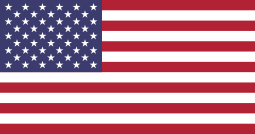How to Choose a Hole Size
Whether you want to switch to slow feeding or stop wasting hay, a hay net can be a great solution. Slow feed hay nets are light weight, portable, and easy to use, but choosing a hole size can be overwhelming. To help make that decision a little easier, we've created a short hole selection guide with answers to some of the most common questions we receive.
Small Holes 1-1.75"
To slow down consumption and eliminate as much waste as possible, you want to stick with a hole that is 2" or less.
Ideally, you want to provide a continuous supply of hay 24/7. By keeping forage in front of your horse longer, you can help avoid or alleviate many digestive, metabolic, and behavioral issues. To help with colic and ulcer prevention, we recommend hay nets with 1.75" holes when feeding round bales and 1-1.5" holes when feeding flakes or small squares.
For minis, we recommend a 1" hole. Because they are notorious for becoming overweight, most minis need a smaller hole and smaller portions.
90% of horses have no trouble with 1.75" holes. If your horse has a laid back/easy going personality, then that is where we recommend starting. However, there are a few net abusers who refuse to play by the rules. This is where a larger hole and thicker material come into play.
Medium/Large Holes 2+"
Larger holes (2+") are ideal for horses who have struggled in the past with small holes. If your horse destroyed a hay net with 1.5" holes, then you can pretty much bet he will do the same to a net with 1.75" holes. In this case, we recommend going up at least 1/2" in hole size if not more and consider going with a thicker net.
Horses who tend to be destructive around the pasture or barn also tend to be hard on nets because they are prone to being frustrated with small holes. In this case, in addition to a larger hole we also recommend using a thicker net like our Heavy Gauge Net. Larger/heavier breeds like those in the draft or warmblood families tend to do better with larger holes and thicker nets.
Special needs horses, like the blind or seniors with dental issues, are good candidates for large holes. A larger hole makes feeding time much easier for them and ensures they are able to get enough. Most horses in this category do well with a 3" hole.
Horses facing harsh winter conditions may also benefit from larger holes. As calorie requirements increase during extreme temperatures, you want to make access as easy as possible. Smaller holes may add additional stress by creating frustration.
Cattle typically do better with 3" holes. Extracting hay through smaller holes can be challenging since they do not have top teeth and rely on their tongue to grab forage. In addition, cattle are ruminants. Their digestive system is completely different from equines. They are not as prone to colic and ulcers, so slow feeding through small holes is not as important.
Another factor to consider is the type of forage you are using. Large holes are the best choice for hay that is long, coarse or thick like alfalfa or straw. Thick stemmed forage can be difficult and sometimes impossible to pull through hay nets with small holes.
Be Prepared
Finding the right hay net may require some trial and error. Don't be afraid to experiment with different hole sizes. There is no one size fits all and no net is indestructible.
Horses are a lot like people. They have different personalities, different levels of patience, and different speeds of learning. Be prepared to spend a little time in the beginning to help your horse understand the new feeding concept.
Holes may happen. Although most horses adjust to slow feeding smoothly, some will be frustrated and will destroy anything in their path at meal time. Typically, this behavior subsides after the first 30 days. However, this is when you're most likely to encounter holes in your net. Luckily, hay nets are easy to repair and the hay savings and health benefits far out way the occasional hole.
See what fits your feeding program. Check out our full line of nets, feeder kits and hole sizes. If you need help choosing one, give us a shout. We're happy to help.
 Made In USA
Made In USA
















